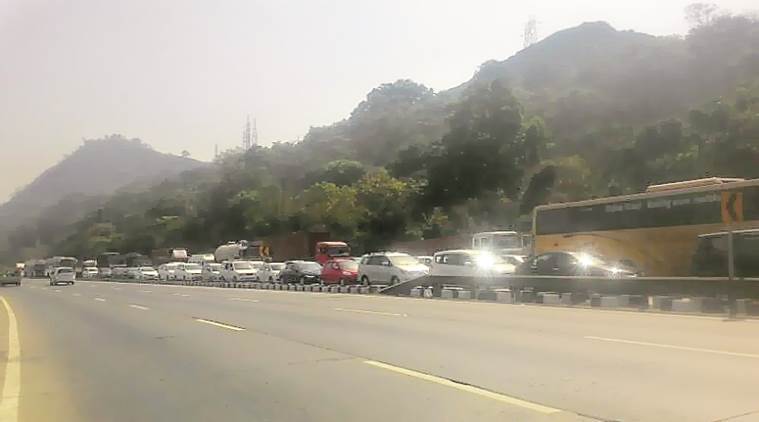 The data released by the initiative shows that it has led to overall reduction in fatalities by 43 per cent, from 151 deaths in 2016 to 86 in 2019. (File photo)
The data released by the initiative shows that it has led to overall reduction in fatalities by 43 per cent, from 151 deaths in 2016 to 86 in 2019. (File photo)
A joint initiative by the state government, private and non-profit organisations to reduce accidents and fatalities on the Mumbai-Pune Expressway has not only led to a reduction in the number of deaths on the 94-km road but also resulted in significantly bringing down the number of deaths per million vehicles and the severity of crashes, according to data released by the Zero Fatality Corridor project.
The project is a joint initiative of the Maharashtra State Road Development Corporation (MSRDC), Maharashtra Highway Police, Mahindra & Mahindra, and the Delhi-based SaveLIFE Foundation. The data released by the initiative shows that it has led to overall reduction in fatalities by 43 per cent, from 151 deaths in 2016 to 86 in 2019. The severity of crashes, which is defined as number of deaths per 100 crashes, has also come down from 53.5 per cent to 24.8 per cent between these years.
Officials said a combination of well-coordinated interventions as part of the project such as crash data analysis, fixing of engineering issues, smart patrolling to prevent collisions with parked vehicles, and improvements in ambulance response has contributed to the reduction in fatalities on the Expressway that connects the two cities.
The project was conceptualised and managed by SaveLIFE Foundation, a non-governmental organisation working towards road safety in India, and it is supported by auto major Mahindra & Mahindra (M&M) through its CSR funds. M&M also supports the project through employee volunteers and support with research.
Radheshyam Mopalwar, vice-chairman and managing director of MSRDC, said, “Every death on the expressway is a matter of grave concern for us. We will not rest till we achieve the target of zero preventable deaths on this crucial link between Mumbai and Pune.”
The data shows that while the average monthly vehicle count increased from 3.59 million vehicles in 2016 to 4.24 million vehicles in 2019, the average monthly fatalities per million vehicles fell from 3.50 in 2016 to 1.69 in 2019.
Through data-driven research and scientific crash investigations, attempts were made to understand why, where, when, and how these crashes took place. Subsequently, the project launched 360-degree interventions on the 94-km stretch to counter these crashes and bring down fatalities. The interventions span over 5Es of Road Safety — Enactment, Engineering, Enforcement, Emergency Care, and Engagement.
Additional Director General of Police (Traffic) for Maharashtra, Vinay Kargaonkar, said, “Intensified patrolling and our zero-tolerance policy towards violators has shown results. Going forward, we will intensify the same. We appeal to the commuters who use the expressway to cooperate with us in this initiative and drive responsibly.”
Speaking on the impact of the project, Vijay Nair, vice-president — admin & CSR for M&M, said, “It’s a matter of great satisfaction that the efforts are showing positive results and fatalities have reduced by over 40 per cent since we started in 2016. We are confident that fatalities will come down to near zero by 2021.”
Piyush Tewari, founder and CEO of SaveLIFE Foundation, stated, “The partnership-based approach to road safety is the only way to save lives on roads in India. We still have some way to go to achieve zero preventable fatalities but our strong partnership with various Maharashtra government agencies, MSRDC and M&M gives us the confidence to carry on till we get there.”
The Mumbai-Pune Expressway was opened to commuters in 2002 and is said to be the country’s first expressway.
The Indian Express had recently reported that after seeing positive results from the Corridor initiative for the Expressway, the state government has ordered formation of a steering committee for the same purpose for the Old Pune-Mumbai Highway.
The stretch of the National Highway 48 between Pune and Mumbai is referred to as the Old Pune-Mumbai Highway, in reference to the Pune-Mumbai Expressway. Before the Expressway was built, the old highway was the only direct road link between two cities. The old highway sees a much higher number of accidents and fatalities than the Expressway.
For comparison, while the Expressway saw 110 deaths in 96 fatal accidents in 2018, the old highway saw 268 deaths in 235 accidents.